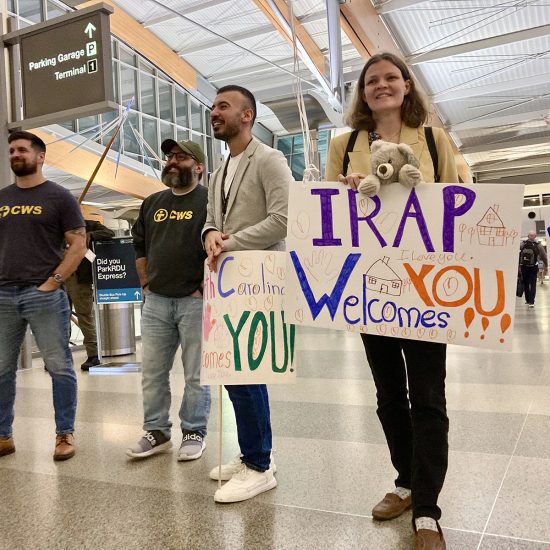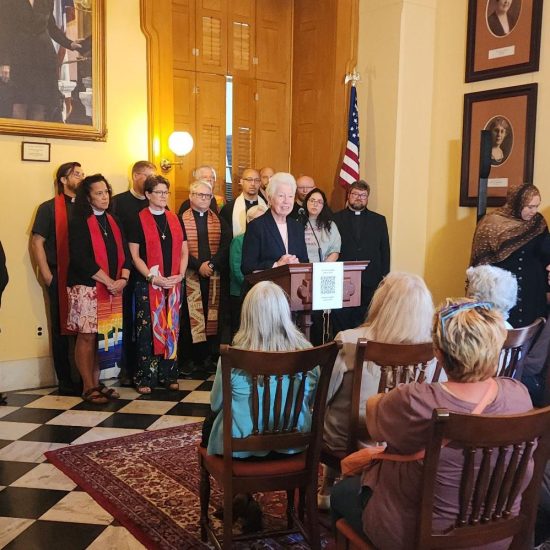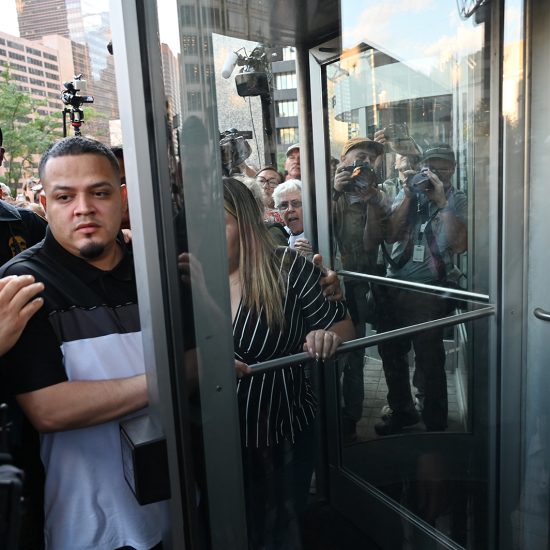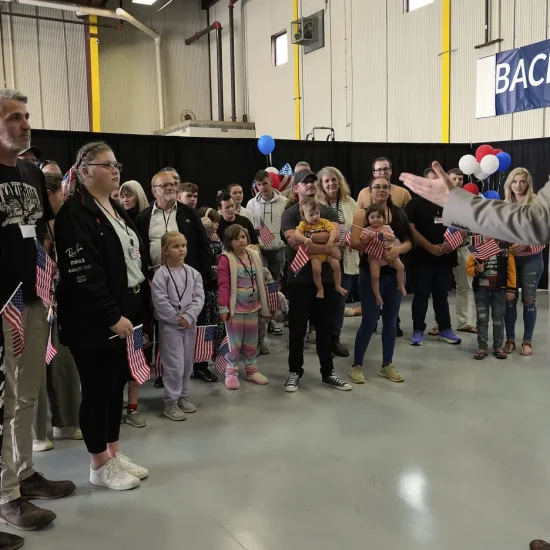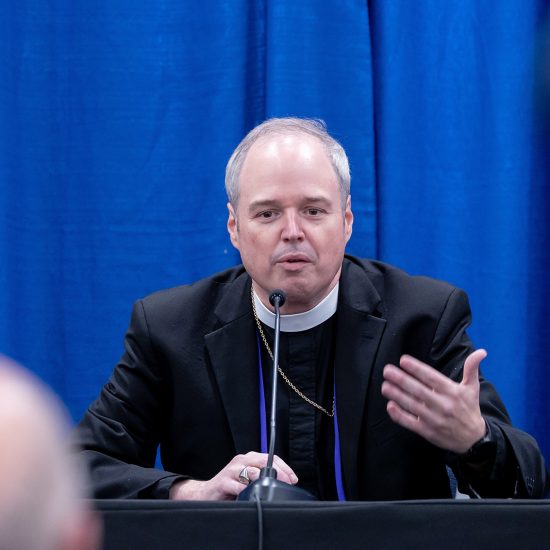DALLAS (BP) — Personal belongings are confiscated, and a participant is stripped of his or her individuality. They become a number. Government workers with stern faces instruct them to face forward. No talking. They’re ushered through a curtain and instructed to write down the names of four loved ones. These are the people they may take with them. No further instruction is given.
During this refugee camp simulation, participants are to grab three items from buckets. They haven’t been told why. No one tells them where they’re going. Harshly, they’re ushered from station to station. A guard with a military uniform and a bat is speaking a foreign language. One participant starts to ask questions. She’s taken away from the group. At the medical station, they’re checked for lice. At the food station they’re informed they must eat. They may not have another chance to for days.
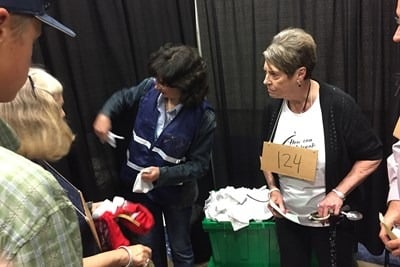 Participants in the WMU’s Refugee Simulation are assigned a number and told to grab three items to take with them on their journey. Photo by Myriah Snyder“Seeking Refuge,” a refugee camp simulation, offered a glimpse into the refugee experience during this year’s Southern Baptist Convention’s annual meeting in Dallas. Woman’s Missionary Union, in conjunction with the International Mission Board, North American Mission Board and Baptist Global Response, sponsored the simulation in the exhibit hall to create an experience similar to that of a refugee in one of the countless camps across the world.
Participants in the WMU’s Refugee Simulation are assigned a number and told to grab three items to take with them on their journey. Photo by Myriah Snyder“Seeking Refuge,” a refugee camp simulation, offered a glimpse into the refugee experience during this year’s Southern Baptist Convention’s annual meeting in Dallas. Woman’s Missionary Union, in conjunction with the International Mission Board, North American Mission Board and Baptist Global Response, sponsored the simulation in the exhibit hall to create an experience similar to that of a refugee in one of the countless camps across the world.
At one point, participants are sent to fill out forms that must be correct. But the forms are in another language. An individual is pulled from the group and sent to interrogation. The officer speaks English and identifies himself as a friend. Soon, it becomes apparent he is not.
“Terror,” “chaos,” “frustration,” confusion were all words participants used to describe their feelings while going through the simulation.
“A lot of times, we don’t realize how harsh of treatment it can be. It can be terrifying for a refugee,” Joy Bolton, executive director of Kentucky WMU, shared after her experience in the simulation.
“Even though we knew it was a simulation, when I got the form that I couldn’t read at all, that was just a very helpless feeling. I realized that was the same for so many refugees,” she said.
Kentucky WMU has featured a local ministry, Refuge Louisville, in their state missions emphasis before. But for those who want to help in more practical ways, Bolton suggests inviting a refugee or immigrant to their home, helping them navigate a grocery store, or genuinely asking to hear their story.
“That fear was overpowering,” Roetta Vaught, Kentucky’s WMU president said after she went through the simulation.
“It was amazing to me because you just don’t think about all the things that they go through,” she noted. “There is just that realization that all these things are happening.”
“We just don’t have any idea of what these people are going through,” she said, “just to try to find some sort of normalcy in their lives.”
The simulation was part of WMU’s new Project HELP social and moral issue emphasis on the refugee crisis. This emphasis will be highlighted for the next four years, WMU President Linda Cooper, said.
“Scripture gives us guidance in Leviticus 19:34 where it says, ‘The foreigner residing among you must be treated as your native-born. Love them as yourself, for you were foreigners in Egypt. I am the Lord your God,'” she said. “God is bringing the world to us in many ways, refugees being one. Some are from countries where it is very difficult and dangerous for Southern Baptists to get in.”
Cooper added, “Refugees need to hear of the love of Jesus and how He wants to be their Savior. Can you imagine how many lives can be changed eternally if we are found faithful?”

